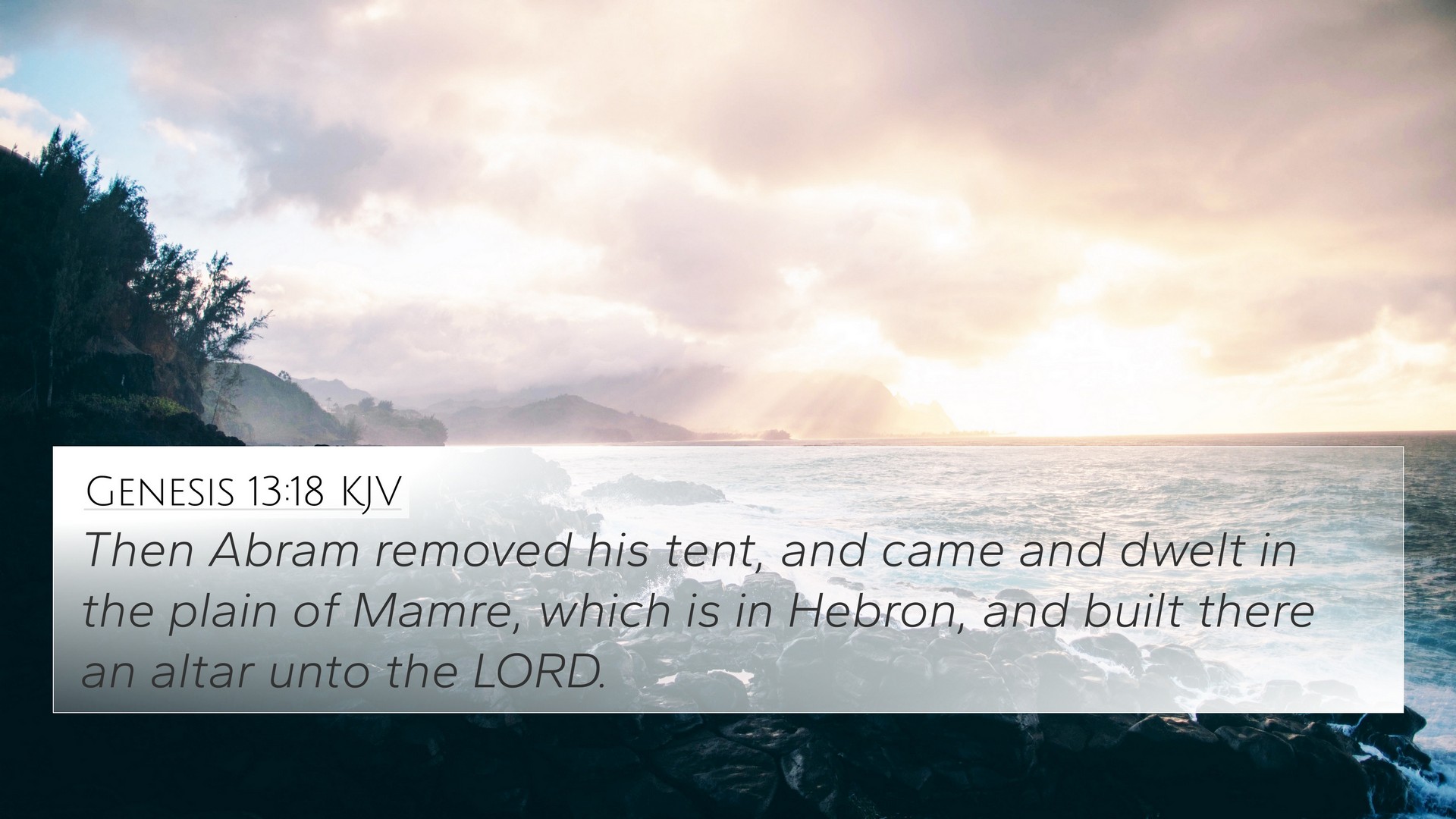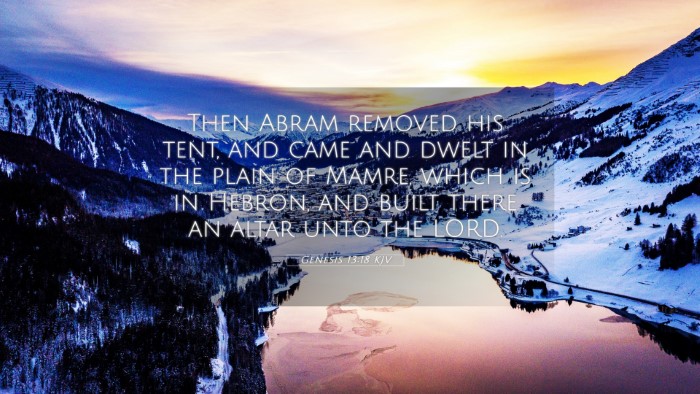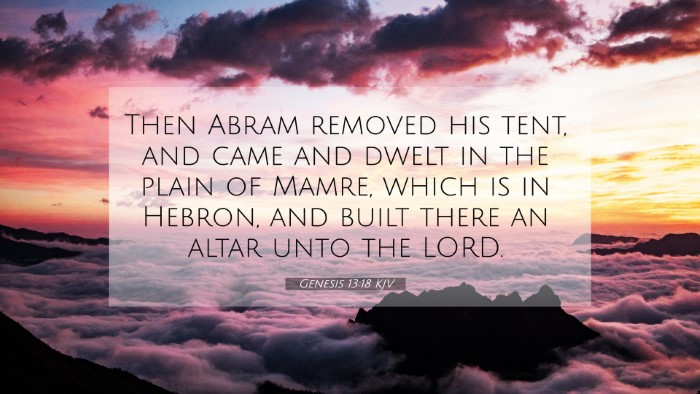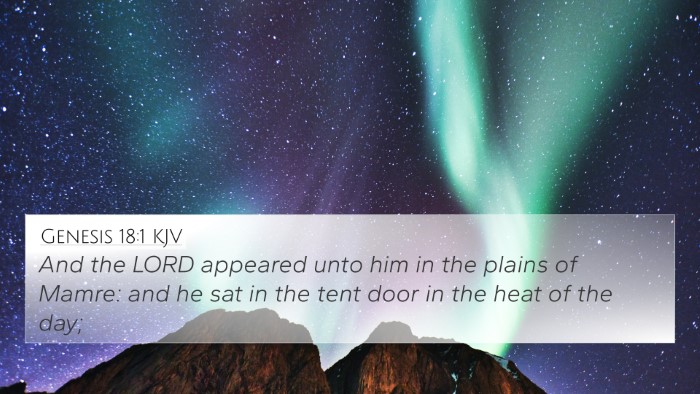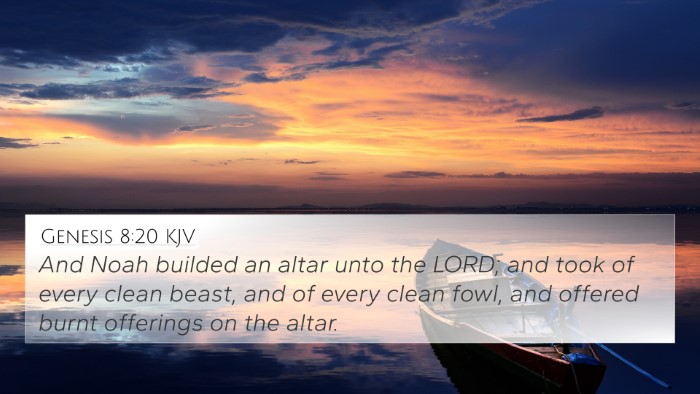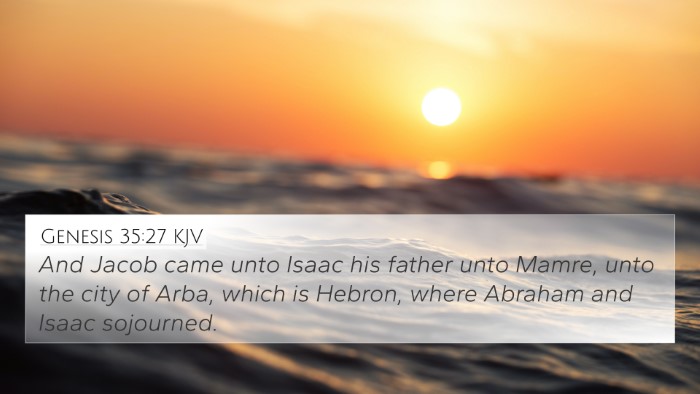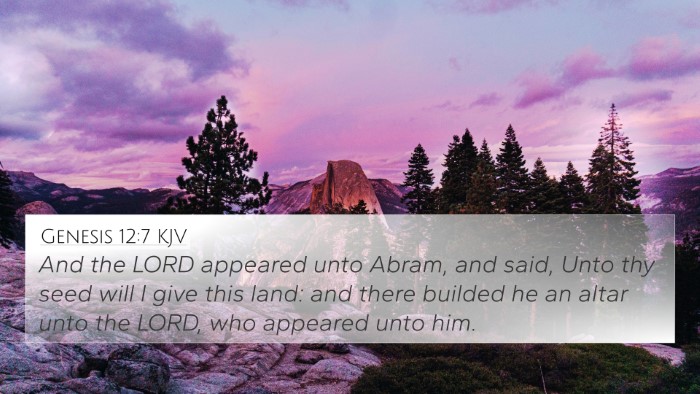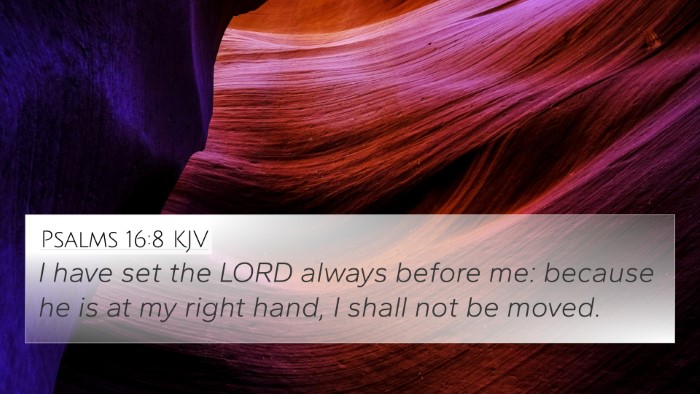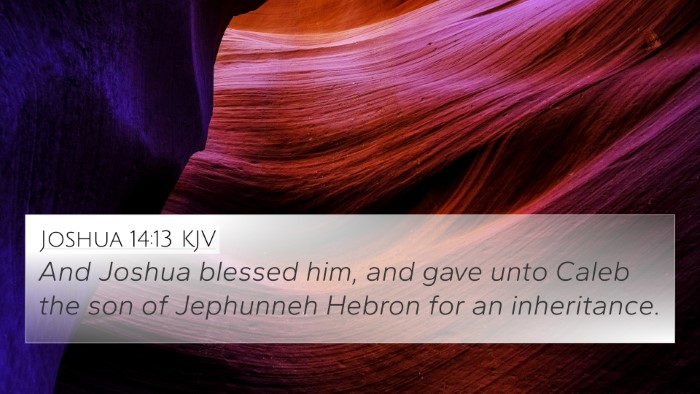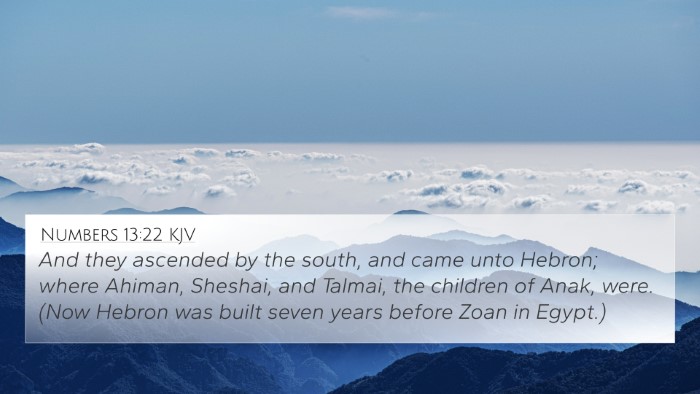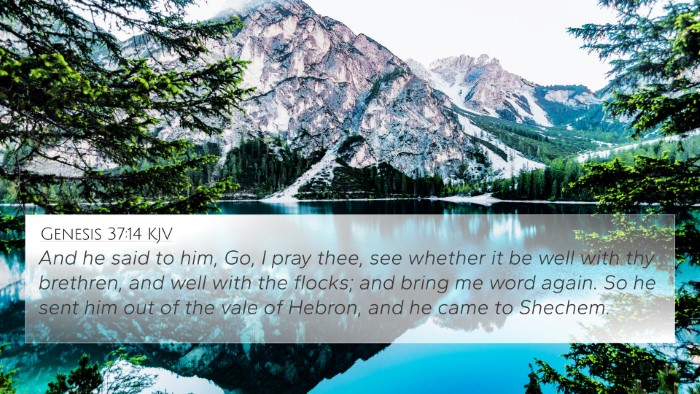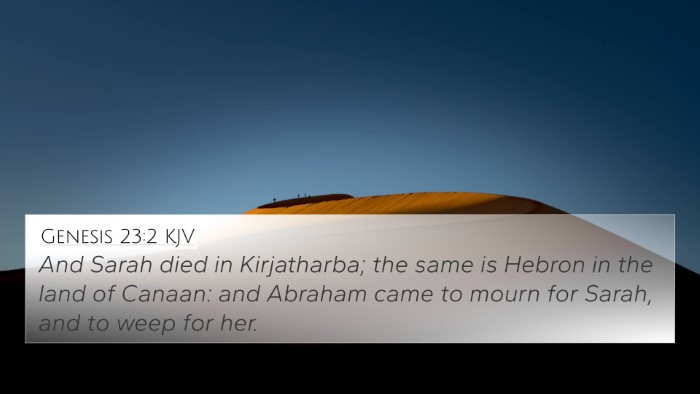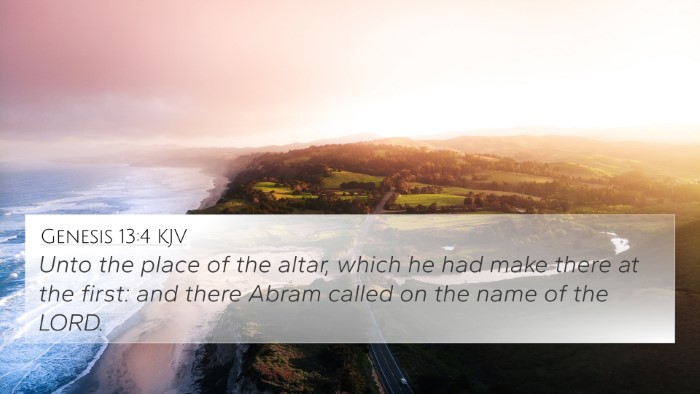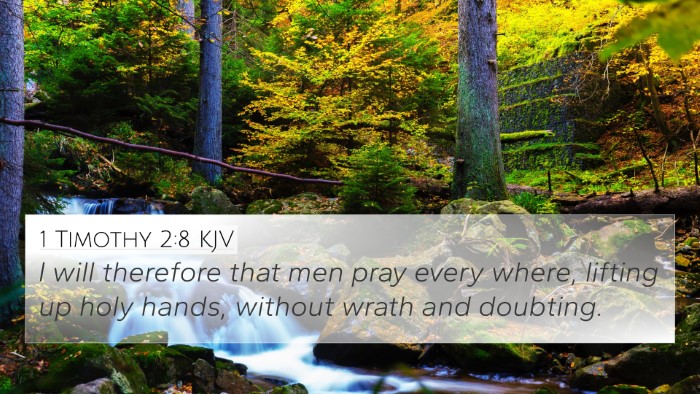Understanding Genesis 13:18
Genesis 13:18 states: "Then Abram moved his tent, and came and dwelt in the plain of Mamre, which is in Hebron, and built there an altar unto the Lord."
This verse marks a significant moment in the life of Abram (later named Abraham). His decision to dwell in Mamre and build an altar to God symbolizes a deeper commitment to worship and an acknowledgment of God's presence in his life.
Contextual Overview
The backdrop of this verse is the separation of Abram and his nephew Lot due to the strife between their herdsmen. As Lot chose the fertile plains of Jordan, Abram remained with faith in God's promises, highlighting his reliance on divine guidance over worldly advantages.
Verse Interpretation from Public Domain Commentaries
Matthew Henry's Commentary
Henry emphasizes Abram's act of building an altar as a profound expression of faith and dedication. In an unknown land, such worship signifies a relationship with God that is personal and enduring. Abram's choice of location, Mamre, suggests his desire for stability amid the uncertainties of migration.
Albert Barnes' Notes
Barnes highlights the significance of dwelling in Hebron, which means "fellowship." The construction of the altar indicates Abram's intention to seek God's guidance and worship, reinforcing the theme of divine relationship that permeates the narrative. The area’s historical significance is noted, as later it becomes the burial place of the patriarchs.
Adam Clarke's Commentary
Clarke provides insights into Mamre's name, which might refer to "strength," representing spiritual fortitude. His emphasis on the altar suggests that religious practices are foundational to biblical characters' lives, establishing a pattern for worship in the journey of faith across the scriptures.
Thematic Bible Verse Connections
Genesis 13:18 connects profoundly with various overlapping themes in scripture. Here are some significant Bible verse cross-references:
- Genesis 12:7 - God's promise to Abram and establishing the covenant through the land.
- Genesis 28:18 - Jacob’s encounter with God leads him to set up an altar, similar to Abram’s commitment to worship.
- Exodus 20:24 - The establishment of altars in worship, emphasizing God's desire for His people to communicate through sacrificial acts.
- Psalm 78:69 - Refers to God establishing a sanctuary, similar to the importance of altars built by patriarchs like Abram.
- Hebrews 11:9-10 - Discusses Abram's faith and hope in dwelling in the land as a promise from God.
- Acts 7:4 - Refers to Abraham’s journey and settlement in the land which was promised by God, emphasizing his legacy.
- 1 Chronicles 11:10-11 - Relating the history of the patriarchs revered in the land they occupied.
- Romans 4:3 - Highlights Abram’s faith being counted as righteousness, making a strong connection between faith and actions.
- Galatians 3:29 - The promise made to Abram extends to all who believe, linking believers to the covenant and its implications for worship.
- 1 Peter 2:9 - Describes believers as a chosen generation and royal priesthood, linking back to the worship and devotion exemplified in Abram.
In-Depth Cross-Referencing Analysis
Examining inter-Biblical dialogue highlights how Genesis 13:18 reflects a broader narrative of God’s relationship with humanity, especially through the faith demonstrated. Below are methods and tools for effective Bible cross-reference studies:
- Bible Concordance: Use to find key terms and their occurrences throughout scripture.
- Bible Cross-Reference Guide: Helpful for beginners in identifying related passages.
- Cross-Reference Bible Study: Engage by reading related verses to build thematic connections.
- How to Use Bible Cross-References: Develop a strategy for regular study that incorporates both Old and New Testament connections.
- Bible Chain References: A method to track themes or ideas from one verse to another effectively.
- Comprehensive Bible Cross-Reference Materials: Utilize available resources that provide extensive connections and insights.
Conclusion
Genesis 13:18 offers profound implications for understanding faith, worship, and God’s promises. By grasping the importance of the altar, the choice of Mamre, and the connections to other biblical texts, believers can enhance their spiritual journey through systematic cross-referencing Bible study methods. This verse encapsulates a pivotal moment where faith and commitment to God are demonstrated, paving the way for future generations in their walk with the Lord.
